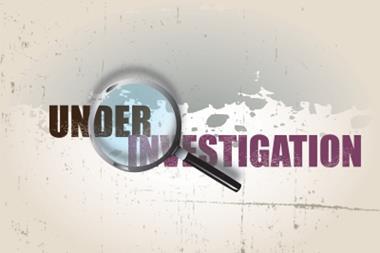Organised crime against businesses is becoming more prevalent in the MENA region and companies should invest more time and money into preventive measures
Part of a multinational risks series supported by


In the Gulf States, there is a discrepancy between what governments and some official outside agencies are saying about fraud and corruption and what is actually happening.
As the latest fraud report from risk consultant Kroll notes, the Gulf has the unhappy record in the MENA region as a source of many kinds of crimes against business in a disappointing turnaround from previous trends. It notes that 35% of respondents reported incidents of information theft; 30% fraud by vendors or procurers along the supply chain; 28% market collusion; and 24% conflict of interest among management.
One of the few types of fraud to which companies feel they are not exposed is money laundering.
To take only the frequency of conflict of interest, it means that managers in no less than one quarter of respondent companies were actually working against the interests of their employers. Faced with such a multitude of threats, it is unsurprising that more and more Gulf-based companies are investing in information security and financial controls.
However, according to Kroll, this may not be sufficient. The company suggests multinationals should be investing more time and money into staff training and – normally an effective preventive measure – whistleblower hotlines.
Cost of fraud
In the meantime, the average cost of fraud in the Gulf, measured in financial terms alone, is said to be running at 1.6% of corporate revenues.
Although not confined to the MENA region, organised crime against business is becoming more sophisticated and threatening. For instance, trade financing is usually an attractive method of funding because it is short term, self liquidating and spread over several parties.
However, as Neil Ross, AIG’s regional manager EMEA trade credit, warns: “We’ve seen techniques that are used to set up companies that pass normal credit-vetting procedures, only to disappear in the future and leave no trace of the goods supplied on credit terms.”
One such fraud to watch for is ‘fresh-air invoicing’ by the client, which is often difficult to track because of the high volume of transactions being financed.
The lesson, Ross says, is to use extra checks rather than relying solely on publicly available information. Working closely with funders and clients, AIG has developed a technology that provides full visibility and tracking of the receivable assets on their sometimes perilous journey.




















No comments yet